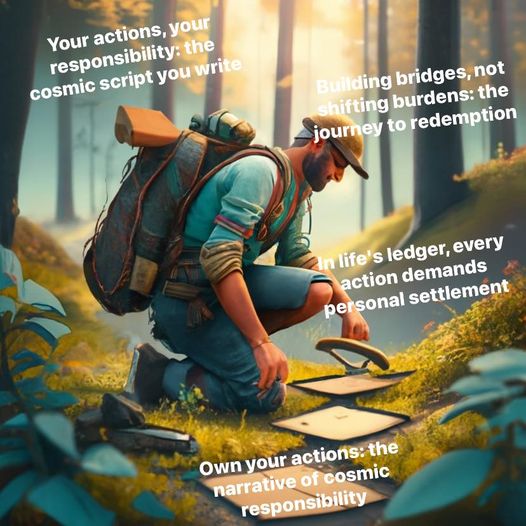
The stark reality of life lies in the unyielding principle that you cannot pass the burden of your misdeeds onto another. It’s akin to planting seeds of thorns in your own garden and expecting someone else to endure the pain of the prickling consequences. In the grand tapestry of existence, each individual is entrusted with the responsibility of tending to their own moral garden. Attempting to shift the weight of transgressions is akin to hoping that a gust of wind will carry away the storm clouds you’ve summoned.
Imagine life as a ledger, where each action inscribes itself in indelible ink. When wrongs are committed, the entries are etched with the precision of a master calligrapher, creating an account that demands personal settlement. Asking another to pay this debt is like expecting a distant star to illuminate a shadowed room—it defies the laws of cosmic justice.
In the grand theater of existence, each individual is a playwright, scripting their narrative with choices and actions. Trying to draft someone else into the role of paying for one’s misdeeds is akin to attempting to rewrite the script of a cosmic drama—the plot remains unchanged, and the responsibility is tethered to the original author.
To seek restitution for one’s mistakes is to embark on a journey toward redemption, much like a traveler mending the path they have trodden. However, expecting others to bear the load is akin to hoping that someone else will rebuild the bridges you burned. The harsh truth echoes through the corridors of time – the toll of your actions is a debt you alone must settle.

